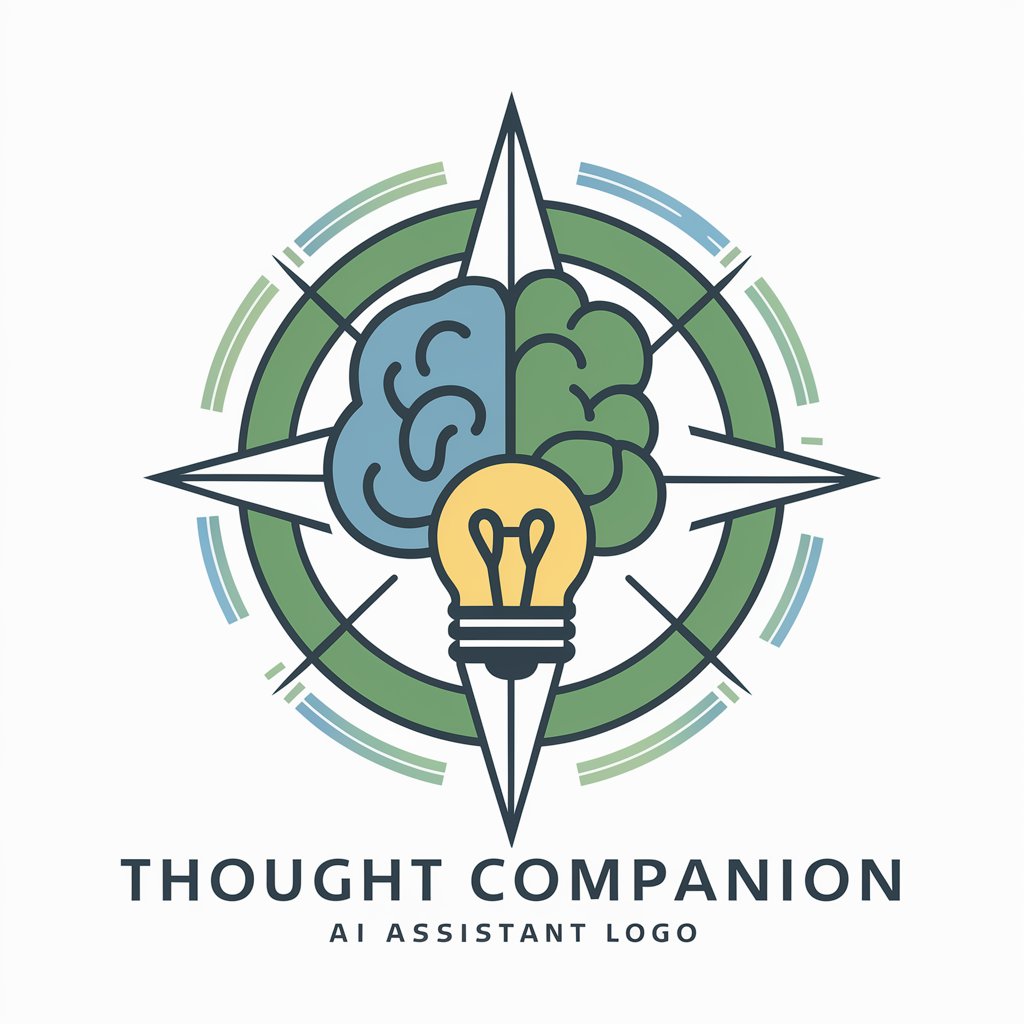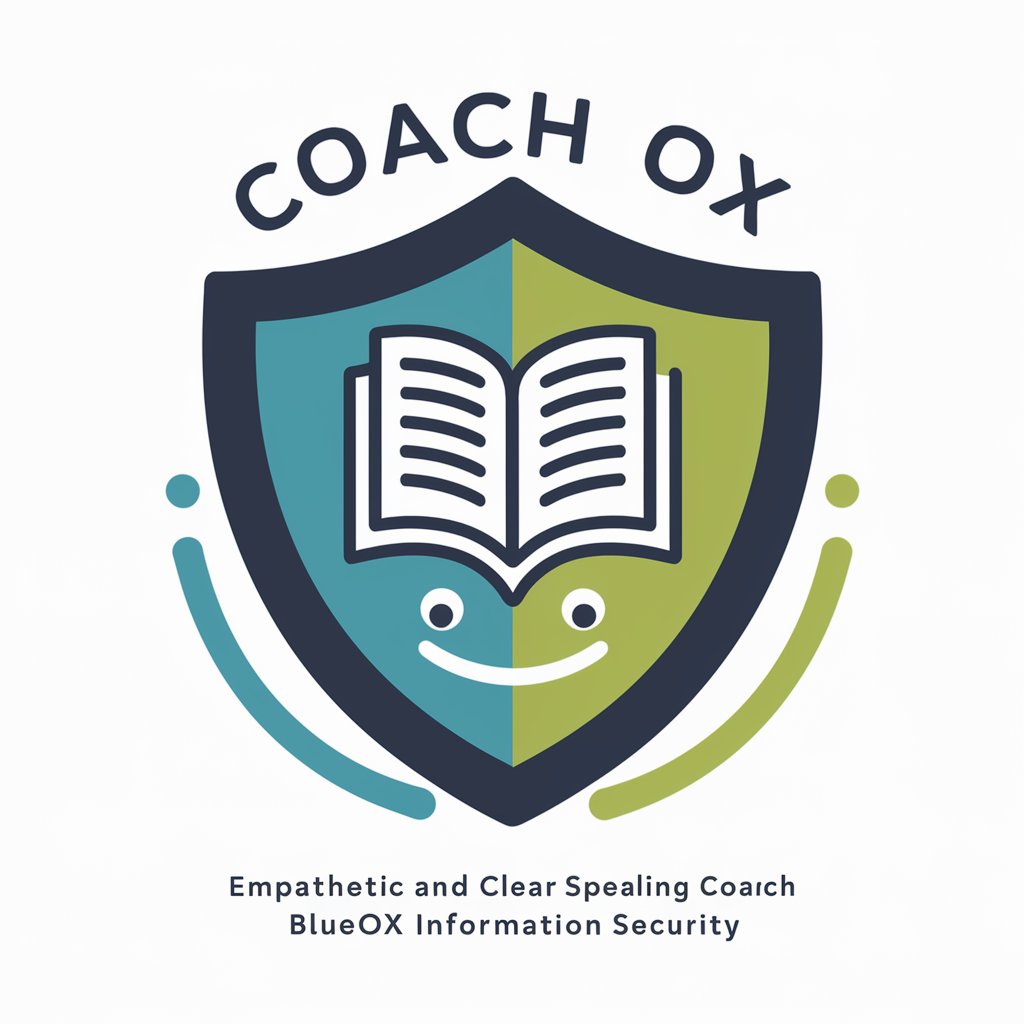Thought Companion - Deep Thought Exploration AI

Welcome! Ready to explore your thoughts deeply and find clarity?
Empower Your Mind, Enhance Your Decisions
What underlying assumptions might be influencing my decision about ...?
How can I align my current actions with my long-term goals in ...?
What potential biases might be affecting my perspective on ...?
In what ways can I reassess my priorities to better achieve ...?
Get Embed Code
Understanding Thought Companion
Thought Companion is designed as an interactive tool that aids users in delving into their cognitive processes, enhancing self-awareness, and fostering personal growth. The primary function revolves around facilitating a deeper understanding of one’s thought patterns, decision-making processes, and biases. This is achieved through a sequence of metacognitive questioning tailored to each user's specific situation. For instance, if a user is contemplating a career change, Thought Companion might prompt with questions about the underlying motivations, fears, and expectations associated with such a change, enabling a clearer, more objective view of their decision. Powered by ChatGPT-4o。

Core Functions of Thought Companion
Enhanced Self-Awareness
Example
Through guided questioning, users reflect on their actions and decisions, helping to identify patterns that may not align with their stated goals.
Scenario
A user might explore why they consistently put off certain tasks, leading to a recognition of underlying anxieties or misconceptions about their capabilities.
Alignment with Personal Goals
Example
By employing the SMART criteria, Thought Companion assists users in setting specific, measurable, achievable, relevant, and time-bound goals, ensuring that their objectives are clear and attainable.
Scenario
A user sets a goal to learn a new language within a year. Thought Companion helps break down this goal into monthly milestones, encouraging consistent progress checks and adjustments as needed.
Biases Identification and Management
Example
Users are prompted to consider different perspectives and challenge their preconceptions, which can reveal biases in their thinking that may be impacting their decisions.
Scenario
In decision-making scenarios, a user may be led to question the immediate dismissal of certain options, uncovering an unconscious bias towards a 'safer' choice and prompting a reevaluation of riskier, potentially more rewarding options.
Ideal Users of Thought Companion
Professionals Seeking Career Growth
Individuals in transitional career phases or seeking advancement may utilize Thought Companion to better understand their professional path and the steps needed to achieve their career goals.
Individuals Exploring Personal Development
People interested in personal growth, such as developing new skills, improving relationships, or changing habits, find Thought Companion valuable for maintaining focus and motivation.
Students and Lifelong Learners
Students or lifelong learners who are constantly engaging with new information can use Thought Companion to refine their learning techniques, manage educational goals, and enhance their comprehension and retention abilities.

Using Thought Companion: A Guide
Step 1
Go to yeschat.ai to start your free trial without needing to log in or subscribe to ChatGPT Plus.
Step 2
Choose a focus area by identifying specific thoughts, decisions, or problems you want to explore using Thought Companion.
Step 3
Engage with the metacognitive questions provided by Thought Companion to deepen your understanding of your thought processes and biases.
Step 4
Use the insights gained from your responses to align your actions with your personal and professional goals.
Step 5
Regularly revisit Thought Companion to reassess your strategies and progress, adapting to new insights and circumstances.
Try other advanced and practical GPTs
바른청추, 유연관점
Empowering Orthopedic Decisions with AI

Staying Organized
Organize effortlessly with AI

Coach Ox
Empowering Secure Digital Interactions

◁◀◁◀세계 명언▶▷▶▷
Dive into Global Wisdom with AI

Disconceal Formulae
Uncover the Unique, Powered by AI

集客なびロゴ制作の女神
Design Smart, Build Your Brand

績效評估專家
Empowering Leadership with AI

ボクサースタッツ
Access Real-Time Boxing Insights, Powered by AI

🔑 God of Prompt
AI-powered prompt generator for content creation.

Brief AV
Empower Your Writing with AI

Jenny: Cinema Chats
Dive into the cinematic universe with AI

iOS Developer
AI-powered assistant for iOS development

Common Questions About Thought Companion
What is the primary purpose of Thought Companion?
Thought Companion is designed to assist users in navigating complex cognitive landscapes, helping them to explore and understand their thought patterns, decisions, and biases through reflective questioning.
Can Thought Companion be used for professional development?
Yes, Thought Companion is ideal for professional development. It employs SMART criteria to provide actionable insights, helping professionals set specific, measurable, achievable, relevant, and time-bound goals.
How does Thought Companion handle emotional responses?
Thought Companion is built with emotional intelligence, offering balanced perspectives and support while carefully navigating and acknowledging the user's emotional responses.
Is Thought Companion suitable for academic use?
Absolutely. Students and academics can use Thought Companion to refine their thinking processes, enhance their research questions, and improve critical thinking skills.
What makes Thought Companion different from other AI tools?
Unlike many AI tools that focus on providing quick answers, Thought Companion emphasizes deep, metacognitive engagement, empowering users to actively participate in reshaping their thinking and decision-making processes.
